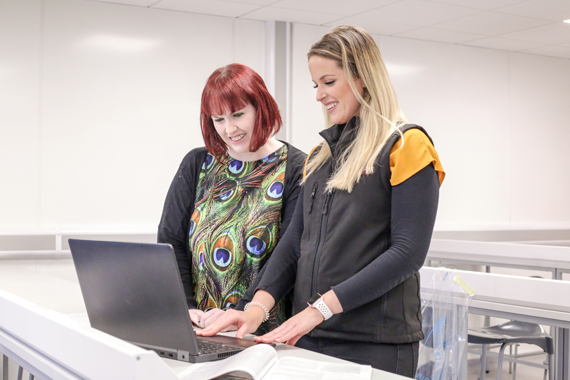Playing music and providing separate waiting rooms could reduce stress for millions of dogs and cats undergoing visits to vets, according to the latest guidance from Hartpury University.
Animal Science experts from the specialist institution have examined the methods used by veterinary practices around the UK aimed at tackling the anxiety felt by pets facing medical treatment.
The new study at Hartpury, carried out by animal science graduate Taylor Williams, animal science lecturer Aisling Carroll and animal behaviour and welfare lecturer Dr Tamara Montrose, surveyed 45 practices in the UK.
Most of them did not provide pets and their owners with access to more than one waiting room or choose to play music while patients were awaiting treatment, despite acknowledging the potential benefits.
Aisling Carroll said: “A veterinary practice can be a stressful environment for pets and the stress that they experience can impact on their health, welfare and the likelihood of owners regularly visiting the practice.
“According to the latest report by the People’s Dispensary for Sick Animals, there are around nine million dogs and more than 11 million cats kept as pets in the UK, so we’re talking about a significant number of animals.
“A range of methods are used by veterinary practices within the UK to attempt to reduce stress in animals during veterinary visits.”
The team at Hartpury is offering the new guidance after surveying veterinary centres and reviewing comprehensive research from around the world relating to the positive and negative impacts of different approaches used by centres on animals.
Tamara said: “Greater consideration of methods to facilitate separation of species where distinct waiting rooms are not feasible, for example through implementing appointments for cats and dogs on different days and times, would be beneficial.
“In addition, veterinary staff should consider utilising classical or specially designed species-specific music in the veterinary practice as this may help mitigate the stress of cats and dogs visiting the practice.”

Dr Tamara Montrose (left) and Aisling Carroll at Hartpury University


